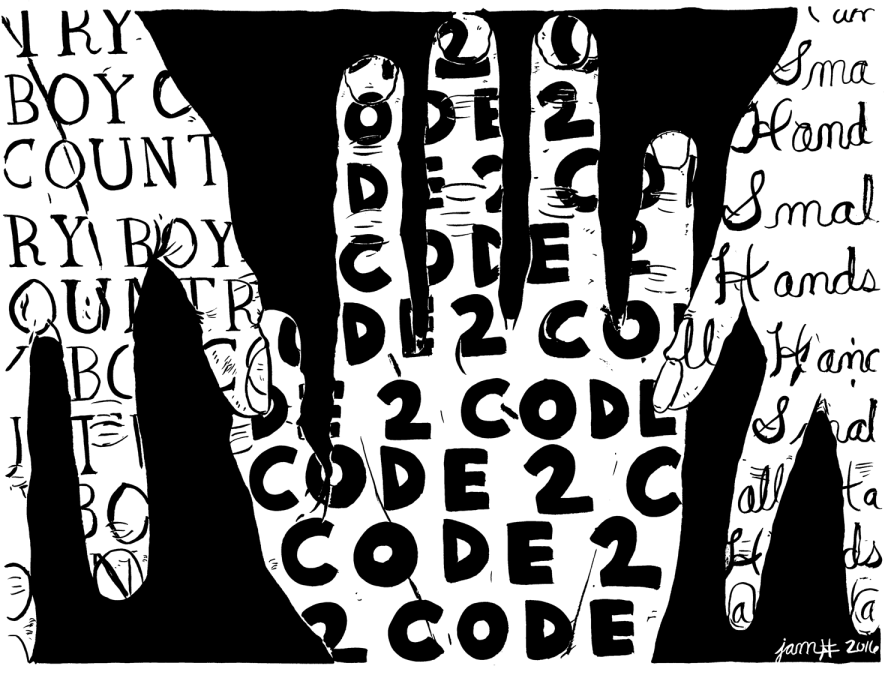Reveal and WBEZ win February Sidney for Exposing Racist Temp Agencies
Will Evans and Michael Montgomery of Reveal from the Center for Investigative Reporting in collaboration with Chip Mitchell of WBEZ win the February Sidney Award for exposing rampant and systemic discrimination in the temp industry by race, sex, and age.
Temp agencies are under pressure to keep their customers satisfied, and many will fill orders for all-white, all-male, or all-Latino work crews. Some agencies use code words like “vanilla cupcakes,” “hockey players,” and “good old boys,” to indicate the client’s preference for white workers. Others are more explicit. “I’m sorry,” a temp agency representative allegedly told two black workers in Atlanta, “but the Company told me to only hire Mexicans.”
Reveal found evidence of systemic discrimination at two dozen temp agencies. The reporters documented the illegal hiring practices with court records, freedom of information requests, and interviews with dozens of agency staffers.
“Employers are outsourcing discrimination to temp agencies,” said Sidney judge Lindsay Beyerstein, “Reveal and WBEZ have uncovered a pervasive but little-discussed problem.”
The investigation was published on The Center for Investigative Reporting’s Reveal website and on its Reveal radio show and podcast, produced with PRX, which airs on more than 230 stations nationwide.
Will Evans is a reporter for Reveal/CIR, covering labor and workplace issues. His reporting with Reveal’s Christina Jewett and CNN exposed rampant fraud in California’s drug rehab system for the poor, prompting widespread reforms and an award from Investigative Reporters and Editors.
Michael Montgomery is a senior producer and reporter for Reveal covering the criminal justice system, vulnerable and exploited populations, and the underground economy. He is the recipient of numerous national and international prizes, including an Overseas Press Club Award, Investigative Reporters and Editors Certificate, Edward R. Murrow Award and Alfred I. duPont-Columbia University Award.
Chip Mitchell reports on policing, immigration, low-wage industries and underground business for WBEZ, Chicago’s NPR affiliate. His investigative and narrative stories have earned about two dozen awards and honors, including two first-place National Headliner Awards.

Backstory
Q: How did you find out that discrimination at temp agencies is a problem?
A: WBEZ reporter Chip Mitchell did some of the first reporting on this issue in 2014, looking at discrimination by temp agencies in Chicago, where there are class action lawsuits and an activist campaign against the practice. I used public records and interviews with former recruiters and managers to determine that it was a systemic problem at temp agencies throughout the country.
Q: How pervasive is it?
A: It’s difficult to quantify because the workers themselves often don’t know it’s happening, or don’t have proof, so hiring discrimination goes underreported. Also, the Equal Employment Opportunity Commission keeps complaints secret, and doesn’t code them all by industry. It doesn’t happen at every temp agency, of course, but what was striking was how similar the practices were at different temp agencies across the country. Many recruiters said this was common practice. Insiders and government regulators alike said this kind of discrimination is endemic to the industry, which is one of the fastest growing in terms of jobs.
Q: Which groups bear the brunt of the discrimination?
A: When it comes to race, the most frequent requests from employers are for white workers or for Latino workers. Either way, the most disadvantaged tend to be black workers, who also suffer from the worst stereotypes. For gender, some jobs are reserved for men, and others for women, but where there’s a difference in wages, women tend to get the lower-paying jobs. Older workers and disabled workers also face this kind of prejudicial screening.
Q: What investigative techniques did you use to report this story? (FOIL requests, CAR, etc.)
A: I filed many public records requests, with both state and federal agencies, and reviewed hundreds of lawsuits. The lawsuits often settled without any press attention, and helped me zero in on specific companies that had been accused of systemic discrimination by former employees. The bulk of the reporting came from dozens of interviews with people who witnessed and often participated in the discrimination themselves. Chip Mitchell also looked at campaign contributions to see how the temp agencies influence the debate in Chicago.
Q: Your reporting shows that the bias goes beyond a few bad apples. What about this industry is so conducive to prejudicial hiring?
A: The temp agencies are already in the business of sorting workers to come up with the right match for each employer. It’s a competitive business, so there’s a lot of financial pressure to please the clients and adhere to their requests. Sometimes, employers think they can get away with it if a third party does the actual discrimination. Federal regulators say that when caught, the temp agencies and employers sometimes point fingers at each other. The multiple players can make it hard for investigators to prove a violation. Plus, the temp workers are especially vulnerable, having no job security and often not knowing what jobs are available or why they get turned down.
Q: What are governments already doing to combat this kind of discrimination, and what else should they be doing?
A: The Equal Employment Opportunity Commission is the federal agency in charge of investigating charges of job discrimination, and it has filed 10 lawsuits against temp agencies for this kind of hiring bias in the last decade. The commission can also push companies to settle before litigation, or provide workers with permission to sue on their own. But most of what the EEOC does is secret, by law, so it’s hard to get a sense of how effective it is overall. There’s also a loophole in their regulations that allows temp agencies some special leeway. All companies with more than 100 employees have to report their workforce demographics to the EEOC, which the commission can then use to spot patterns of discrimination. But companies don’t have to report temporary workers, ever since the temp industry pushed for an exemption in the 1960s. The commission is now considering whether to revise those regulations. As Chip Mitchell reported in his segment of the radio show, there also was an effort in Illinois to pass a state law requiring temp agencies to record the race and gender of job applicants. Worker advocates said it would show evidence of discrimination and hold temp agencies accountable, but the bill failed last year amid industry opposition and racial tensions.




